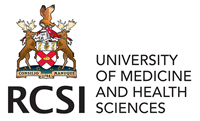Prof K McGuigan, Dr F Fitzpatrick
Applications accepted all year round
About the Project
According to the WHO and UNICEF, in 20171:
• 2.1 billion people are without access to a safely manage source of water.
• 1.8 billion rely on either unimproved water sources or improved sources that are faecally contaminated.
• 844 million people still lack even a basic drinking water service.
• 159 million people collect drinking water directly from surface water sources.
The 2030 Sustainable Development Agenda agreed by the United Nations (UN) Member States in 2015 calls for universal access to safe drinking water. Therefore, development of sustainable and affordable pointof-use (POU) water treatment technologies to deliver safe drinking water at household or microcommunity level is a priority for achieving Sustainable Development Goal 6 (Clean Water and Sanitation). Solar water disinfection (SODIS) 2 is a water treatment technique where transparent containers are filled with water and exposed to sunlight for a minimum of 6 h allowing the UV to kill the waterborne pathogens.
SODIS is one of the most appropriate household water treatment & storage (HWTS) technologies for treating drinking water in low-income environments because it’s:
1. Effective against a wide range of waterborne pathogens
2. Low- or zero-cost in areas where transparent containers are available.
3. Easy to use: very little training is required.
One of the obstacles to SODIS uptake is the workload associated with filling, exposing and managing a sufficient number of standard 2L bottles to provide for the entire household. An objective of the EU WATERSPOUTT project (Grant no 688928 see www.waterspoutt.eu) was to develop a 20L Transparent Jerrycan (TJC) for SODIS purposes. As a result we designed the TJC and demonstrated that the optimum material for its manufacture is polypropylene (PP). However, in WATERSPOUTT we were unable to source a manufacturer in Europe or Africa who could produce PP TJC prototypes for us. Eventually compromised and the TJCs were made of polyethylene terephthalate (PET) plastic, which is not ideal.
The EU has just awarded Prof McGuigan funding to coordinate a second H2020 Project (PANIWATER Grant no. 820718) which includes funding for the manufacture and evaluation of PP TJCs in India. The successful StAR PhD Researcher will conduct a large scale (~1000 children under 5 yrs) 18 month field trial of the public health impact of the use of 20L PP SODIS TJCs on childhood diarrhea and water quality among disadvantaged communities in Rajasthan in India in cooperation with our local Indian partners.
The researcher will be responsible for:
• Conducting baseline survey of incidence of diarrhoeal illness in the study population
• Conducting regular water quality analysis at participating households
• Collection and analysis of pre- & post-implementation data on incidence of diarrhea for the duration of the study.
Almost every household without access to safe water in low-income countries has a jerrycan. If this project is successful it has the potential to replace all of these with PP TJCs which will provide safe drinking water for the most vulnerable communities across the globe.
References
1. WHO/UNICEF Progress on Drinking Water, Sanitation and Hygiene -2017 Update and SDG Baselines.
(https://washdata.org/sites/default/files/documents/reports/2018-01/JMP2017-report-final.pdf)
2. McGuigan et al. Solar Water Disinfection (SODIS): A review from bench-top to roof-top. J. Hazard. Mater. 235–236 (2012) 29–46.

 Continue with Facebook
Continue with Facebook

